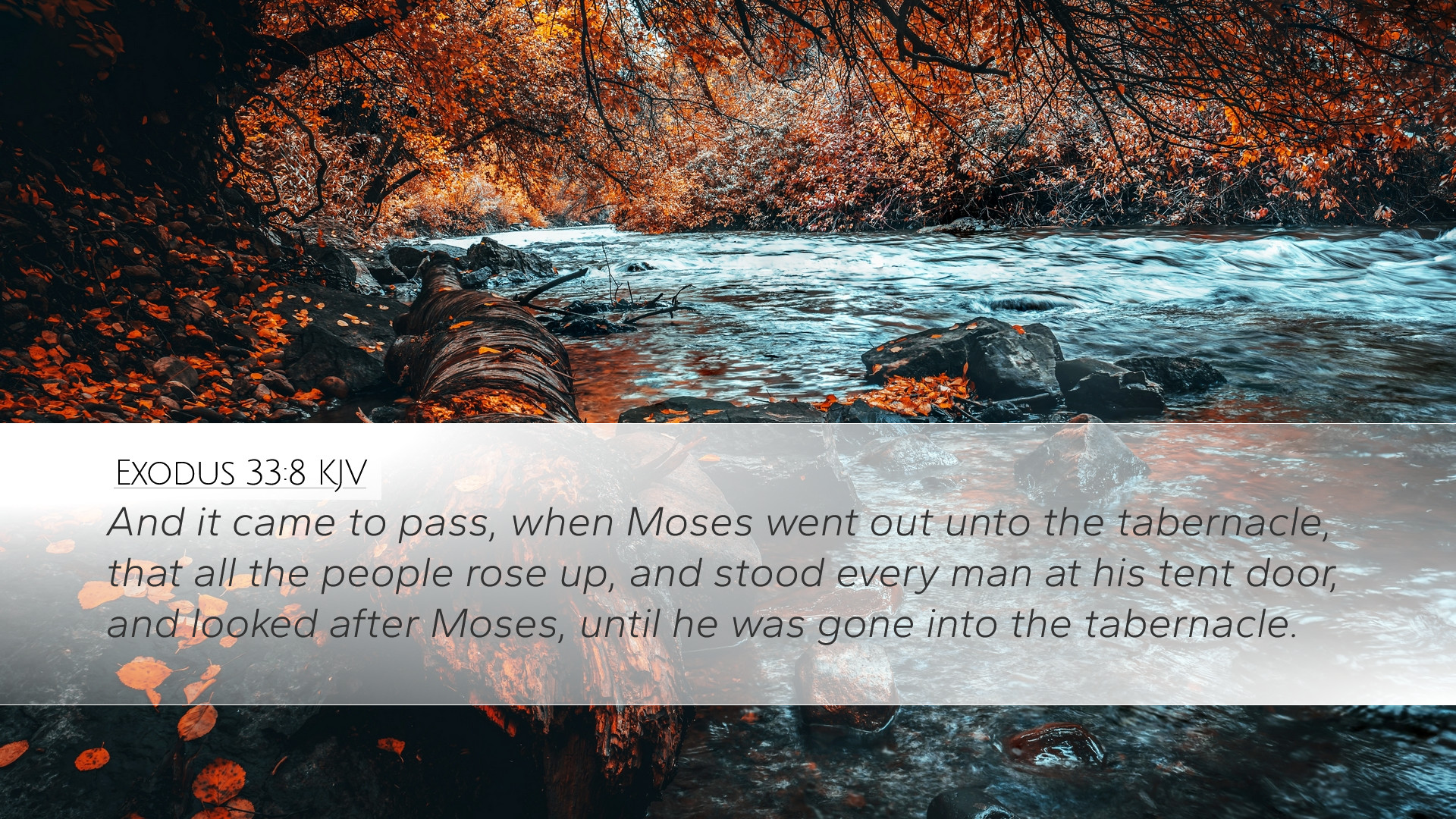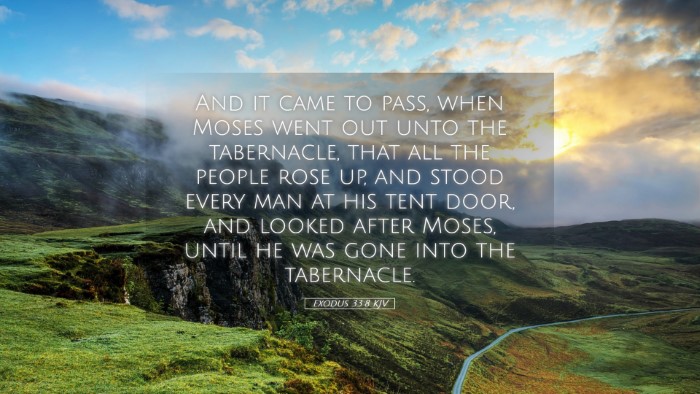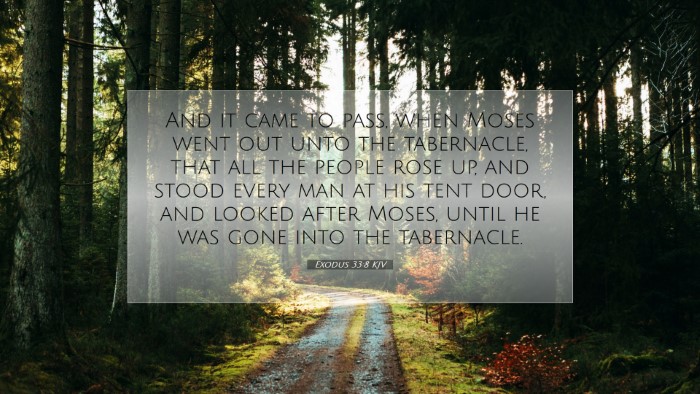Exodus 33:8 - Commentary and Insights
Verse: "And it came to pass, when Moses went out unto the tabernacle, that all the people rose up, and stood every man at his tent door, and looked after Moses, until he was gone into the tabernacle." (Exodus 33:8, KJV)
Introduction
This verse encapsulates a pivotal moment in the relationship between God and His people as mediated through Moses. The act of Moses going to the tabernacle signifies not only his role as their leader but also the people's anticipation and respect for his encounter with God. Commentators emphasize several key themes in this passage, which we will explore further.
The Context of the Passage
This event occurs after the incident of the golden calf, a time of great intercession and conflict. Moses, as a type of Christ, stands as a mediator between the people and God. His ascension to the tabernacle illustrates a profound spiritual longing on the part of both Moses and the Israelites.
1. The Significance of the Tabernacle
The tabernacle symbolizes the dwelling place of God among His people. According to Matthew Henry, this area was not merely a place of worship but a sanctuary where divine communion could occur. As Moses entered, it represented a return to fellowship after the people's sin.
2. The People’s Response
The congregation's reaction, standing at their tent doors, signifies both reverence and expectation. Albert Barnes notes that their posture reflects a deep recognition of and longing for God’s presence. They display both sadness and awe, indicating their understanding of the weighty nature of Moses’ task.
3. Moses as Mediator
Moses’ role in this verse is pivotal. He actively approaches the Lord, which serves as a foreshadowing of Christ’s intercessory role. According to Adam Clarke, Moses' actions are emblematic of a leader who seeks to bring reconciliation and understanding between God and His people.
Theological Implications
Several theological concepts emerge from this verse that are essential for understanding the character of God in relation to mankind.
1. Divine Presence
The entry of Moses into the tabernacle highlights the idea of God’s presence among His people. Matthew Henry expounds upon how this presence is not only protective but also guiding, signifying that God wishes to lead His people towards holiness.
2. The Role of Intercession
The concept of intercession is critical. Adam Clarke emphasizes that Moses’ actions here set a precedent for the necessity of intermediary figures in the relationship between humanity and the divine. This lays groundwork for understanding Christ’s ultimate role as our advocate.
3. The Human Condition
The people’s expectation as Moses departs underscores a fundamental aspect of the human condition—a longing for connection with God, especially in the aftermath of failure. Albert Barnes affirms that this illustrates the inherent desire for reconciliation and guidance among the followers of God.
Practical Applications
For contemporary believers and leaders, several lessons can be drawn from this verse:
- The Importance of Prayer: Just as Moses sought the presence of God, so should believers cultivate a rich prayer life, consistently seeking God's guidance for themselves and their communities.
- Leadership Responsiveness: Leaders must be attuned to the spiritual needs of their congregations, following Moses’ example of dedication and earnestness in pursuit of God’s will.
- Expectation of God's Presence: Believers should maintain an expectation and eagerness for divine encounters, understanding that God desires to dwell among His people.
Conclusion
Exodus 33:8 serves as a profound reminder of the sacred connection between God and His people, mediated through faithful leaders. The insights drawn from historical commentaries shed light on the implications of Moses’ actions and the fundamental need for divine presence in our lives. The anticipation of the Israelites highlights a beautiful longing that continues to resonate in the hearts of believers today.


